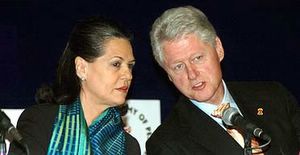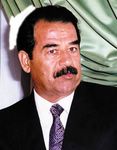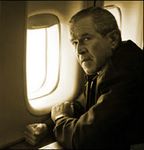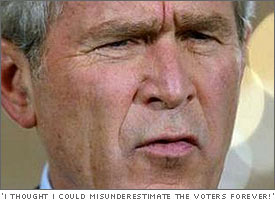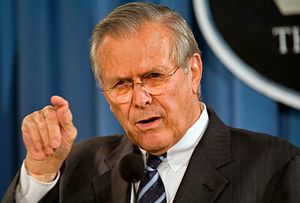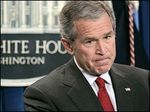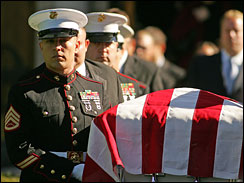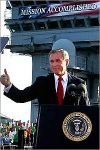
A revisionist inside the White House has "leaked" to The New York Times a memo by Donald Rumsfeld in which the now-inoperative defense chief allegedly suggests NOT staying the course in Iraq. See -- he had the right idea all along.
Rumsfeld Memo Proposed ‘Major Adjustment’ in Iraq
By Michael R. Gordon and David S. Cloud, New York TimesWASHINGTON, Dec. 2 — Two days before he resigned as defense secretary, Donald Rumsfe ld submitted a classified memo to the White House that acknowledged that the Bush administration’s strategy in Iraq was not working and called for a major course correction.
“In my view it is time for a major adjustment,” wrote Mr. Rumsfeld, who has been a symbol of a dogged stay-the-course policy. “Clearly, what U.S. forces are currently doing in Iraq is not working well enough or fast enough.”
Nor did Mr. Rumsfeld seem confident that the administration would readily develop an effective alternative. To limit the political fallout from shifting course he suggested the administration consider a campaign to lower public expectations.
“Announce that whatever new approach the U.S. decides on, the U.S. is doing so on a trial basis,” he wrote. “This will give us the ability to readjust and move to another course, if necessary, and therefore not ‘lose.’ ”
“Recast the U.S. military mission and the U.S. goals (how we talk about them) — go minimalist,” he added. Mr. Rumsfeld’s memo suggests frustration with the pace of turning over responsibility to the Iraqi authorities; in fact, the memo calls for examination of ideas that roughly parallel troop withdrawal proposals presented by some of the White House’s sharpest Democratic critics.